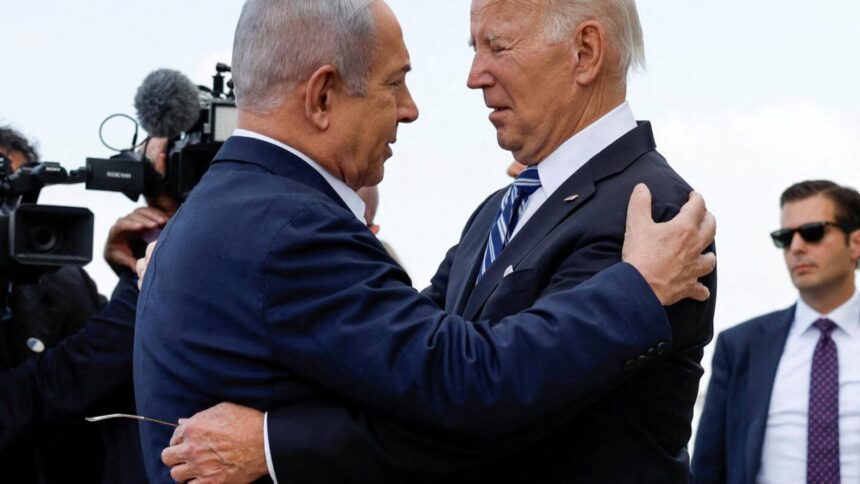Summary by Geopolist | Istanbul Center for Geopolitics:
The article provides a critical evaluation of the Israeli-Palestinian conflict strategy implemented by U.S. President Joe Biden subsequent to Hamas’s October 7 attack. Biden’s unwavering support for Israeli Prime Minister Benjamin Netanyahu, both militarily and diplomatically, is characterized as a failure to achieve critical U.S. objectives in Gaza one year after the attack occurred. These objectives encompassed the prevention of a regional conflict, the protection of Palestinian civilians, the safeguarding of hostages, and the elimination of Hamas.
The situation has deteriorated significantly in spite of these intentions. The humanitarian crisis has reached extreme levels, and Gaza is in ruins, with over 42,000 Palestinians reported deceased. Hamas has not been entirely eradicated by Israel, and numerous detainees continue to be held captive. Furthermore, the war has expanded to Lebanon, and cease-fire negotiations have been unsuccessful, raising the possibility of a more extensive conflict that includes Iran.
The article underscores that the Biden administration’s actions have also contributed to the situation, despite the fact that Israel, Hamas, Hezbollah, and Iran bear significant responsibility for the violence. In spite of the increasing number of civilian casualties, the administration’s failure to exert substantial pressure on Israel has undermined U.S. diplomacy. The article emphasizes the administration’s failure to impose meaningful consequences, its fast-tracking of military aid to Israel, and its early rejection of cease-fire calls, despite violations of international law. Despite the fact that certain U.S. officials expressed apprehensions regarding the humanitarian disaster in Gaza, the administration continued to provide military support to Israel without any explicit boundaries.
Additionally, the United States has been largely unsuccessful in its efforts to regulate the postwar situation. Israeli actions have impeded the implementation of strategies to prevent the reoccupation of Gaza and the displacement of Palestinians. The limits of the Biden administration’s influence are emphasized by its management of Israel’s invasion of Rafah, a critical border town in Gaza. Despite Biden’s warning that an invasion of Rafah would violate a “red line,” the administration downplayed the operation when Israeli tanks entered the area, indicating to Israel that it had unrestricted military operations.
Additionally, the article emphasizes the regional implications that are more extensive. The United States has been brought closer to a potential conflict with Iran as a result of Israel’s expansion of the war into Lebanon, which includes operations that target Hezbollah.. Israeli Prime Minister Netanyahu has been able to proceed without any significant repercussions as a result of the administration’s inconsistent messaging, which has warned Israel against escalation in Lebanon while simultaneously ensuring unconditional support. Tensions have been further exacerbated by Iran’s response of launching missile attacks against Israel.
In summary, the article contends that the United States’ policy has been unsuccessful in both diplomatic and strategic terms as a consequence of Biden’s unwavering support for Israel. The author urges the Biden administration to condition military assistance to Israel on compliance with international law and to strive for a political solution that addresses the core causes of the conflict, thereby advocating for a fundamental shift in U.S. policy. The article cautions that the conflict will persist in destabilizing the region and harming U.S. interests in the absence of this change.
Read the full article here.







